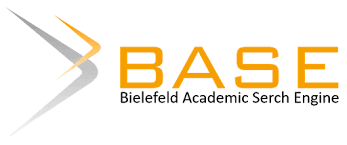IMPLEMENTASI PEMBELAJARAN BERBASIS PROYEK (PJBL) UNTUK MENINGKATKAN KOMPETENSI MEMBUAT COFFE LATTE ART PADA KELAS XI KULINER A SMK NEGERI 3 TABANAN SEMESTER GANJIL TAHUN PELAJARAN 2022 /2023
DOI:
https://doi.org/10.59672/widyadari.v24i2.3025Keywords:
Project-Based Learning, Learning Achievement, coffee latteartrAbstract
This study aims to describe the use of the Project-Based Learning method for Culinary learning achievements of Class XI Culinary A students at SMK Negeri 3 Tabanan, Tabanan Regency in the 2022/2023 Academic Year. This classroom action research was designed in two cycles, in each cycle carried out for one month. At the end of the action of each cycle, monitoring and evaluation are carried out, which are then reflected in the results of the evaluation for planning the next cycle. Monitoring was carried out using observation techniques, interviews and student skills tests on the competence of making latteart coffee in the Barista Elective Subject. After using the learning process with the project-based learning method, students who do not understand how to make coffee latteartr. indicates a deeper understanding of making latteart coffee. in Barista Elective Subjects. Based on the results of the evaluation, it can be seen that in cycle I there was an increase in students' mastery of making latte art coffee in the subject of choice of the barista with the learning achievement score increasing from the average initial learning achievement score of 59.40 increasing to 68.72 with the percentage of mastery interpreting the model semiconductor atoms. in barista elective subjects by 15.69%. The average percentage increase in the level of Culinary learning achievement between before and after the first cycle of action was 29.61%. In cycle II, in the form of project-based learning techniques, there was an increase in the average value of student achievement from 68.72 to 78.48 with an increase in the percentage of mastery of interpreting the atomic model of semiconductor materials by 13.92%.
Downloads
References
Arikunto, Suharsimi. 2002. Prosedur Penelitian Suatu Pendekatan Praktek. Jakarta: Rineka Cipta.
Dantes, I Nyoman. 1986. Variabel penelitian dan Perumusan Hipotesis. Singaraja: Jurusan Ilmu Pendidikan, FKIP Unud.
Depdikbud. 1999. Penelitian Tindakan Kelas (Classroom Action Research). Jakarta:Dirjen Dikti, Proyek Pengembangan Guru Sekolah Menengah.
Djamariah, Syaiful Bahri dan Aswan Zain. 1996. Strategi Belajar Mengajar. Jakarta : Rineka Cipta.
I Kadek Yogi Mayudana, I. K. S. (2018). Penerapan Model Pembelajaran Kooperatif Tipe STAD (Student Teams Achievement Division) untuk Meningkatkan Hasil Belajar Matematika Siswa. Liabilities (Jurnal Pendidikan Akuntansi), 1(1), 13–23. https://doi.org/10.30596/liabilities.v1i1.2027
I Komang Sukendra, I Made Surat, I. M. D. (2022). Pengembangan Bahan Ajar Matematika Vokasi Digital Berbasis STEM di SMK Pada Materi Trigonometri. 23(1). https://doi.org/10.5281/zenodo.6390927
I Komang Sukendra dan I Wayan Sumandya. (2018). Model Pembelajaran Problem Based Learning Berbasis Asesmen Kinerja dan Bakat Numerik Terhadap Hasil Belajar Matematika Siswa. 19(1), 30–38.
Madya., Suwarsih. 1994. Panduan Penelitian Tindakan. Yogyakarta: Lembaga Penelitian IKIP Yogyakarta.
Soekamto, Toeti dan Udin Saripudin Winataputra. 1997. Teori Belajar dan Model-model Pembelajaran. Jakarta : Depdikbud.
Sudjana., Nana. 2000. Dasar-dasar Proses Belajar Mengajar. Bandung: Sinar Baru Algensindo.
Wayan Widana, I Made Yoga Parwata, Ni Nyoman Parmithi , I Gusti Agung Trisna Jayantika, Komang Sukendra, I. W. S. (2018). Higher Order Thinking Skills Assessment towards Critical Thinking on Mathematics Lesson. International Journal of Social Sciences and Humanities (IJSSH), 2(1), 24–32. https://doi.org/10.29332/ijssh.v2n1.74
Downloads
Published
How to Cite
Issue
Section
License
Copyright (c) 2023 LPPPM Universitas PGRI Mahadewa Indonesia

This work is licensed under a Creative Commons Attribution-NonCommercial-ShareAlike 4.0 International License.
Hak cipta mencakup hak eksklusif untuk mereproduksi dan mengirimkan artikel ini dalam semua bentuk dan media, termasuk mencetak ulang, memotret, mikrofilm dan reproduksi serupa lainnya, serta terjemahannya. Reproduksi dari bagian manapun dari jurnal ini, penyimpanannya di database dan transmisinya dengan bentuk atau media apa pun, seperti salinan elektronik, elektrostatik dan mekanis, fotokopi, rekaman, media magnetik, dan lain-lain, akan diizinkan hanya dengan izin tertulis dari penerbit jurnal.






1_(1).jpg)











